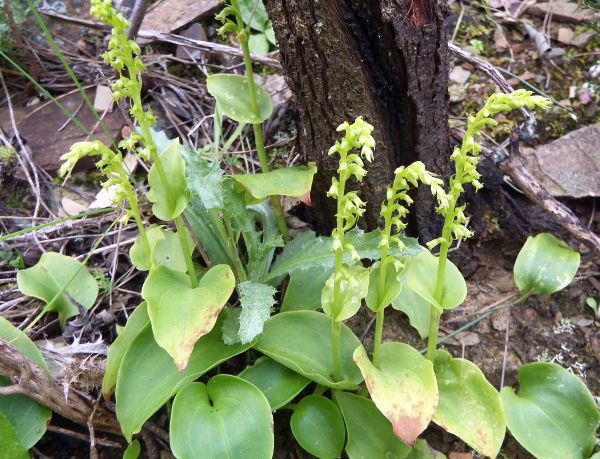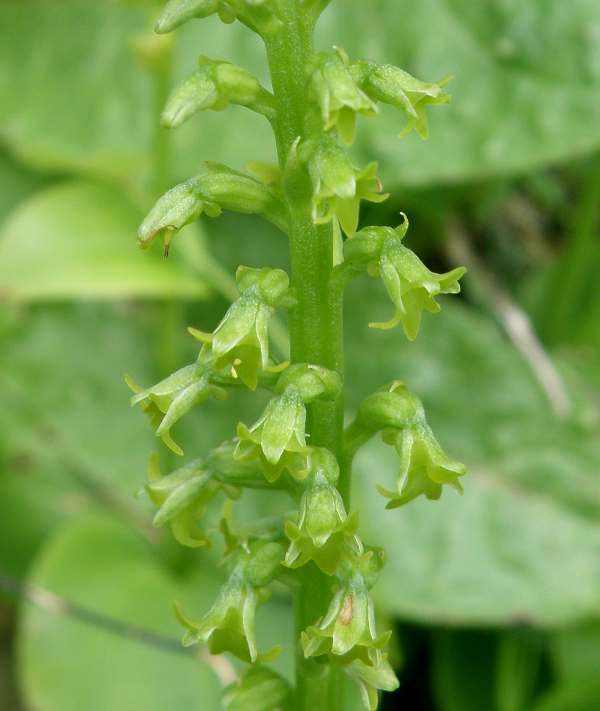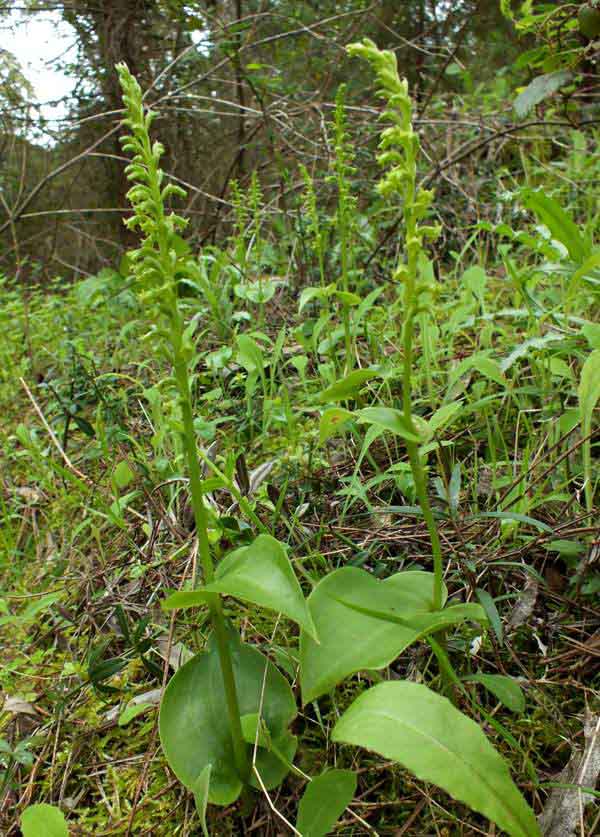Gennaria diphylla - Two-leaved Gennaria
Phylum: Magnoliophyta - Class: Liliopsida - Order: Orchidales - Family: Orchidaceae

Above: Gennaria diphylla growing in typical habitat in the Algarve - a steep very stony bank.
This orchid is both localised and rare - or is it just very difficult to spot? It is, after all, entirely greenish-yellow and blends in rather well with surrounding plants.
Description
The leaves are usually found part way up the stems of the plants, although in some examples there are several pairs, some close to the base of the plants, and others higher up the stems.
The flowers are tiny and also greenish yellow. Each spike can carry up to 45 of these tiny bell-shaped flowers, which appear in the very early spring - from January through to the end of April at the latest.
Distribution
Gennaria diphylla is most commonly found in the central and western Mediterranean regions and becomes more scarce towards the east. It is also present on Madieira and on some of the Canary Isles.

Habitat
This orchid can be found on acid substrates but also tolerates a degree of alkalinity. Gennaria diphylla grows in pine woodlands, under laurel, and in the barrocal where they can sometimes be seen growing in between rocks in very stony ground.
Flowering times
January and February are the best times to see this plant with fresh flowers. Although the plants persist until the beginning of April in some places, the flowers have long since been replaced by seeds.

The flowers on this page were found on a bank close to Barragem da Bravura in the Algarve region of Portugal.
Etymology
The genus name Gennaria honours Italian botanist Patrizio Gennari (1820 - 1897). The specific epithet diphylla means 'with two leaves'.
Reference sources
The Plant List
Sue Parker (2023) Wild Orchids of the Algarve - where, when and how to find them; First Nature e-book (Amazon Kindle format)
Chris Thorogood and Simon Hiscock (2014) Field Guide to the Wildflowers of the Algarve; Kew Publishing
Pierre Delforge (2005) Orchids of Europe, North Africa and the Middle East; A&C Black
Please Help Us: If you have found this information interesting and useful, please consider helping to keep First Nature online by making a small donation towards the web hosting and internet costs.
Any donations over and above the essential running costs will help support the conservation work of Plantlife, the Rivers Trust and charitable botanic gardens - as do author royalties and publisher proceeds from books by Pat and Sue.


